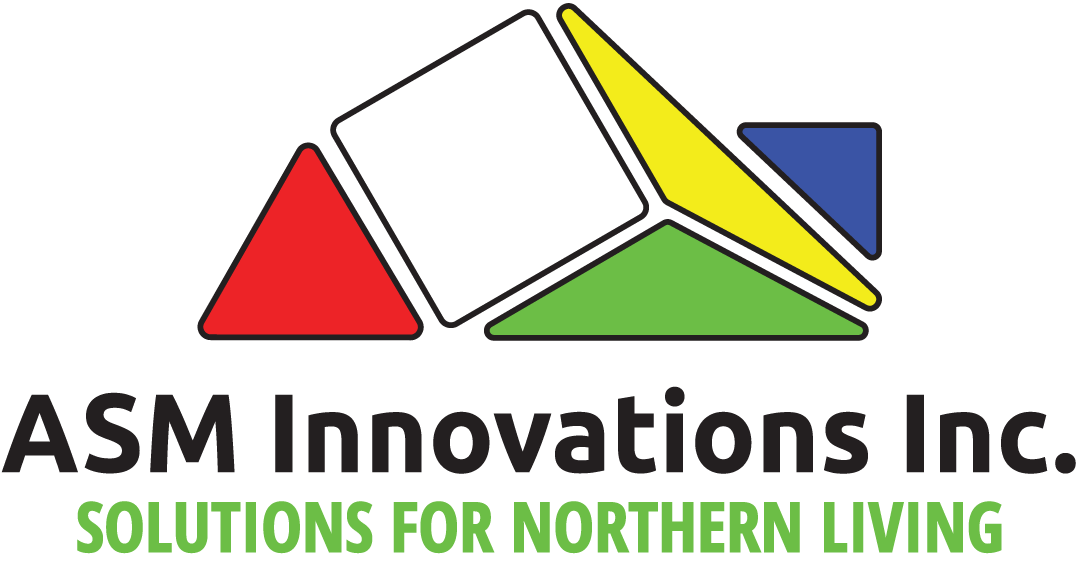ASM Innovations Inc. (ASM) was started in September of 2016 in Thunder Bay, Canada to provide solutions for Canadians and others who live in challenging environments, common to the north. The company was incorporated on December 20th, 2016 and secured its first contract shortly afterwards.
We have several core beliefs, which define how we operate and what we provide. Our passion is what drives our business and by offering solutions to different problems, we set clear goals for ourselves. Some of the issues that we think we can help out with include:
Food Insecurity
While this may be apparent to many readers, one of the biggest issues facing northern communities is food insecurity. Food insecurity, which is defined as “the state of being without reliable access to a sufficient quantity of affordable, nutritious food” is basically determined by access to a healthy and balanced diet. There are several causes of food insecurity, but the largest drivers come from the high cost of nutritious food, the short growing season and limited local selection. In Canada, First Nation peoples are more likely to experience food insecurity and in some communities in Ontario, food insecurity rates can be as high as 70% and average around 28%. Of the 38 remote communities in Ontario, 25 are First Nation, representing over 14,000 people. The people living in these communities rely on imports of food to sustain them, especially in the winter months. Locally grown food is a sustainable option that will not only reduce costs for residents, but also result in healthier diet choices.
Health diet, healthy life
Due to their remote location, and the high cost of nutritious food, many remote communities in northern Canada suffer from extremely high rates of food insecurity, and subsequently medical conditions from poor diets. If you consider that a case of “pop” is several times cheaper than an equivalent amount of fresh fruits or vegetables, many residents of northern communities have developed unhealthy diets which consist of processed foods and very little fresh fruit or vegetables. For First Nation members on reserve, members are 3 to 5 times more likely to have Type 2 diabetes than the Canadian average. We believe that the causal factors of this phenomena are two-fold; a lack of nutritious and healthy food, combined with a lack of traditional activity. Locally grown food in greenhouses would allow northern residents nutritious and economical alternatives to the status quo…. something that ASM will continue to work with our partners to provide.
The Tipping point, “How little things can make a big difference”
Malcolm Gladwell defines a tipping point as “the moment of critical mass, the threshold, the boiling point.” He outlines the belief that in any business, community or organization, there is a “tipping point” which completely changes the outcome of a community or organization for the better, or for the worse. In our view, many northern communities have a “tipping point” that revolves around local economic activity and as well social activities. With our greenhouses, we believe that we can not only provide sustainable employment opportunities for northern and remote communities but also provide the basis for further economic or community growth. From personal experience (and depending on the community), there are not a lot of activities for many people to do, especially in the winter. This is a divergent tradition from cultural practices and societal norms which have in some ways been replaced. Particularly, what is lacking in many communities is a place to gather and socialize, especially during the winter. Greenhouses would provide year round areas for people to gather; to socialize, to work and to enjoy nature, regardless of the season.
From the topics above, ASM was born. ASM was founded by Andreas Zailo & Slim Babay out of Thunder Bay, Ontario. Slim is a biologist with a degree in software engineering, and Andreas is a mechanical engineer with a strong interest in greenhouse design. Combined, Andreas, Slim and their team can cover conception, construction, operation and training required to ensure the successful implementation of a sustainable platform for growing fruits and vegetables year-round.

Mission Statement: ASM’s mission is to accelerate the North’s transition to sustainable food initiatives to combat food insecurity, stimulate economic growth and build community capacity.
ASM’s Vision Statement “is to be the bridge between the challenges northern communities face and available and innovative technological solutions.”
